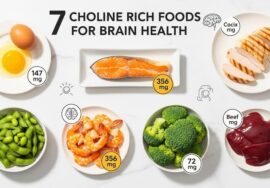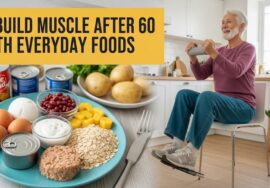A Practical Breakdown of a Chemical That Shapes How You Feel, Think, and Act
You hear about it in wellness podcasts and social media clips—but what is dopamine in the brain, really? Is it about happiness? Addiction? Focus?
Let’s simplify it. Dopamine is a chemical your brain makes. It doesn’t just make you “feel good”—it helps you move, think clearly, focus, and stay motivated. Without enough of it, even simple tasks can feel like mountains.
Table of Contents
- So, What Is Dopamine?
- What Does Dopamine Do for You?
- How Dopamine Shows Up in Daily Life
- Signs You Might Be Low on Dopamine
- Ways to Help Your Dopamine Levels Naturally
- FAQs
- Final Thoughts
🧠 So, What Is Dopamine?
Dopamine is a chemical messenger. It moves signals between brain cells. Scientists call this type of messenger a neurotransmitter. Dopamine helps your brain sort out what’s rewarding, interesting, or worth doing.
You produce dopamine deep in your brain, mostly in areas tied to emotion and movement. From there, it travels to different parts of the brain that handle focus, drive, and even body movement.
⚙️ What Does Dopamine Do for You?
This tiny molecule is involved in more areas than most people realize. Here’s what it influences:
- Getting things done: Dopamine gives you the drive to complete goals.
- Focusing your attention: It helps your brain stay on one task.
- Enjoying success: That good feeling after solving a problem or winning a game? That’s dopamine.
- Keeping your mood stable: Without enough dopamine, your energy and mood may feel flat.
- Movement and control: Your ability to move smoothly depends on it.
🔄 How Dopamine Shows Up in Daily Life
Let’s break it down even more. Here’s how dopamine works in simple moments:
- You eat a snack you love → a bit of dopamine gets released
- You cross a task off your list → dopamine says “nice work”
- You hit a goal at work → another little boost
This feedback loop helps your brain link effort with reward. The problem? Fast dopamine hits—like phone notifications or sugar—can flood the system. When that happens too often, natural sources of joy might not feel as exciting anymore.
⚠️ Signs You Might Be Low on Dopamine
When your brain doesn’t manage dopamine well, it can affect how you feel and function. You may notice:
- Trouble finishing tasks
- Constant need for stimulation (sugar, phone, coffee)
- Feeling mentally tired even after sleeping
- Less joy from things that used to excite you
🍳 Ways to Help Your Dopamine Levels Naturally
You don’t need fancy supplements. Your body is built to manage dopamine. But you can support it with small, simple habits.
✅ Try These:
- Eat foods with tyrosine – This amino acid helps build dopamine. Good sources include eggs, avocados, and lean meats.
- Move more – Even a short daily walk can help your brain produce dopamine.
- Sleep better – Poor sleep lowers your dopamine the next day.
- Reduce quick dopamine hits – Skip the endless scrolling and sugar binges.
- Finish small goals – Your brain loves a win, even a tiny one.
🟨 FAQs
Q: Is dopamine a hormone?
No. It’s a neurotransmitter. That means it helps send signals in the brain, especially in reward and attention systems.
Q: Can dopamine levels be measured?
There’s no easy test for dopamine in the brain. Doctors look at symptoms and behavior instead.
Q: Do certain foods help with dopamine?
Yes. Foods high in protein—like eggs, fish, and nuts—contain tyrosine, which your brain uses to make dopamine.
Q: What’s the difference between serotonin and dopamine?
Dopamine drives motivation. Serotonin stabilizes mood. They work together but aren’t the same.
Q: Does caffeine affect dopamine?
Yes, caffeine temporarily boosts dopamine signaling, which is why coffee helps with alertness.
🧠 Final Thoughts
Dopamine isn’t just about pleasure. It’s your brain’s way of helping you focus, act, and enjoy life. When balanced, it keeps you moving forward with clarity and motivation. When off track, it can leave you feeling flat or unmotivated.
The fix isn’t complicated—better food, sleep, movement, and cutting down on overstimulation can all help. You don’t need to hack your brain. Just give it what it needs to thrive.








